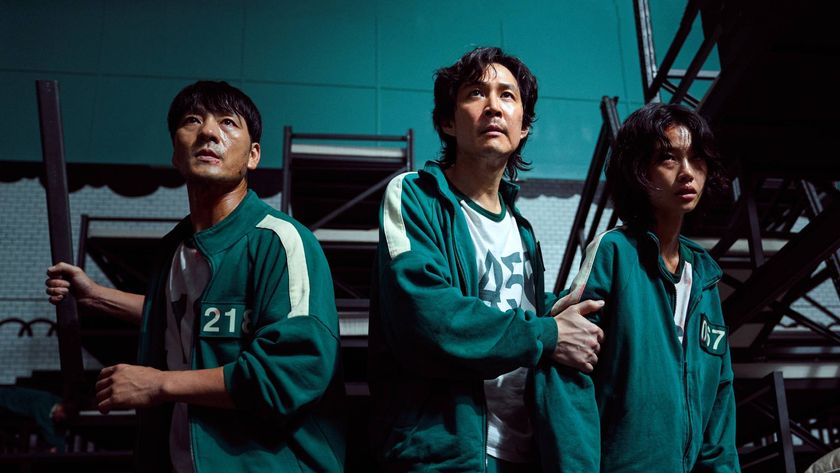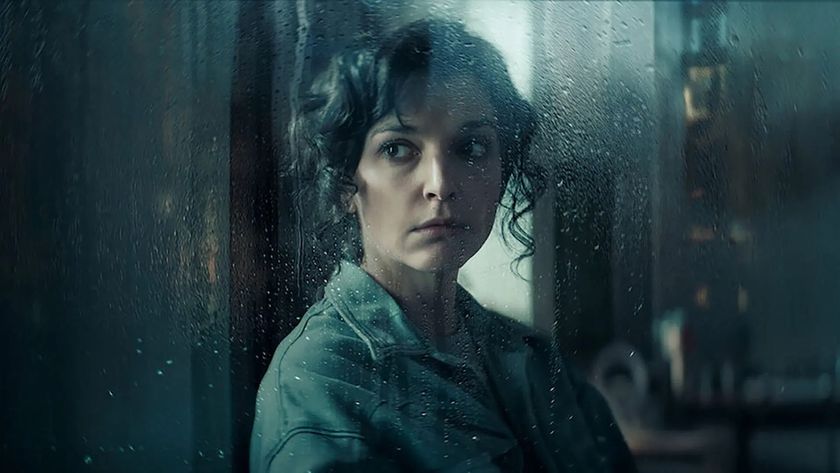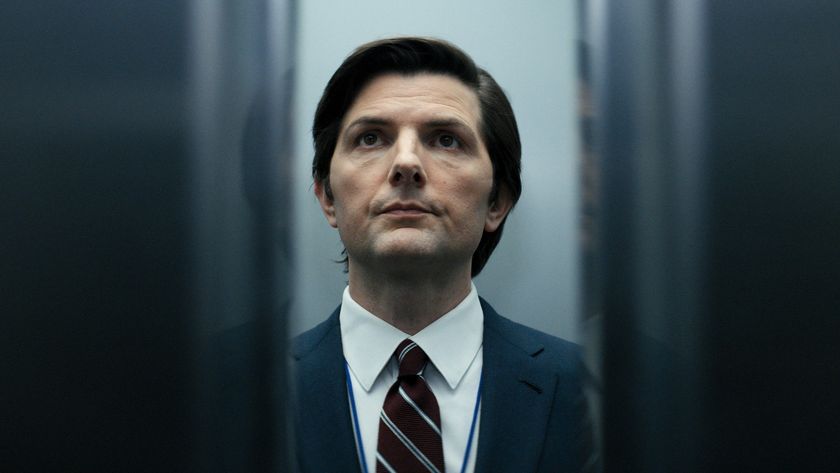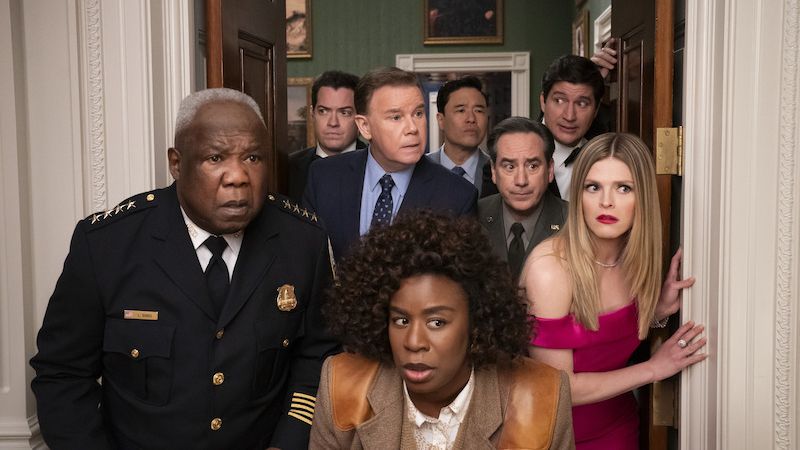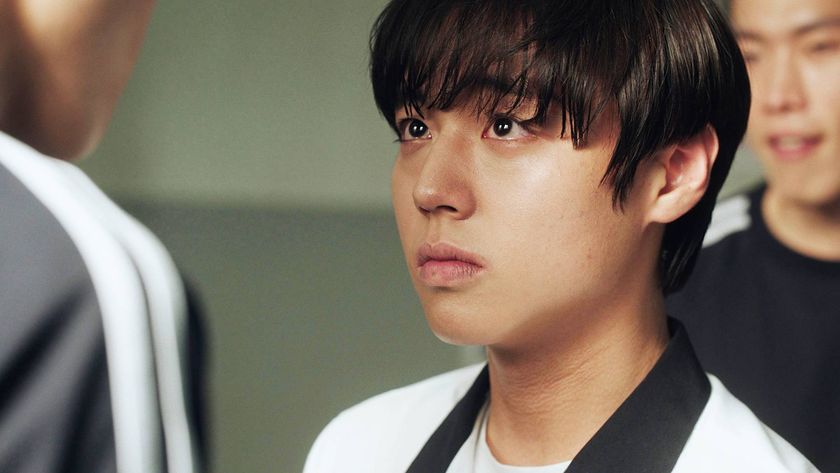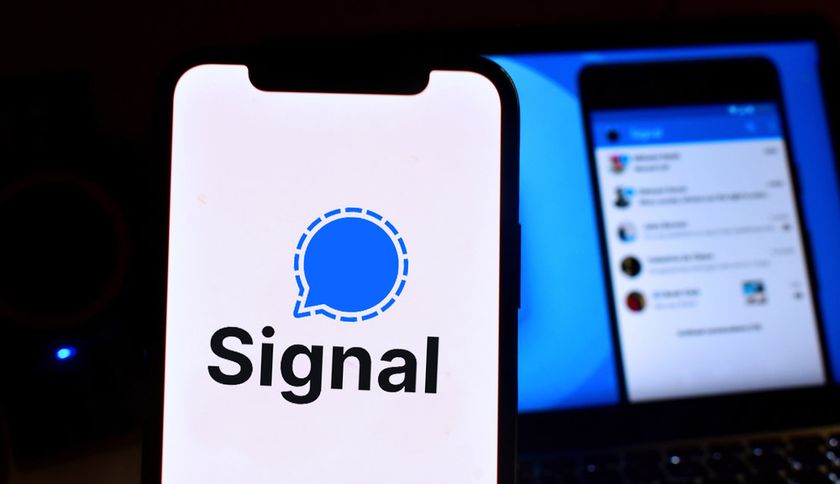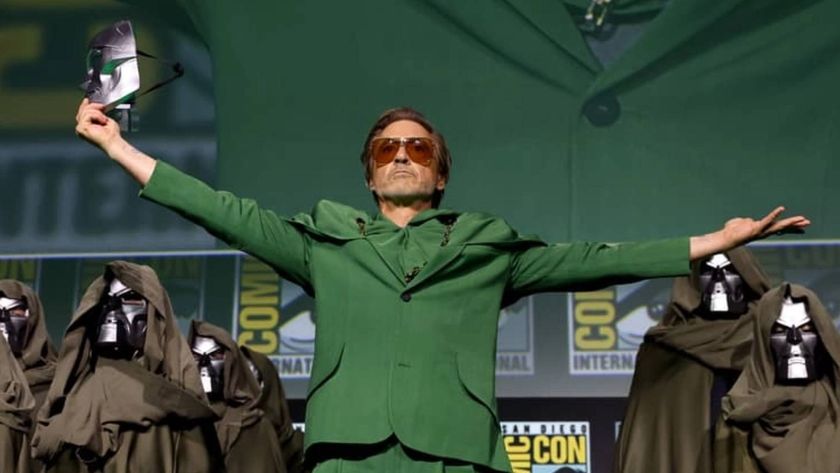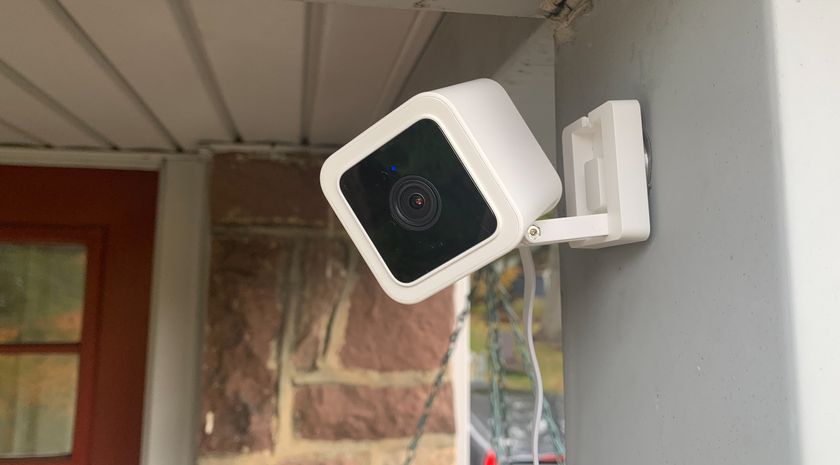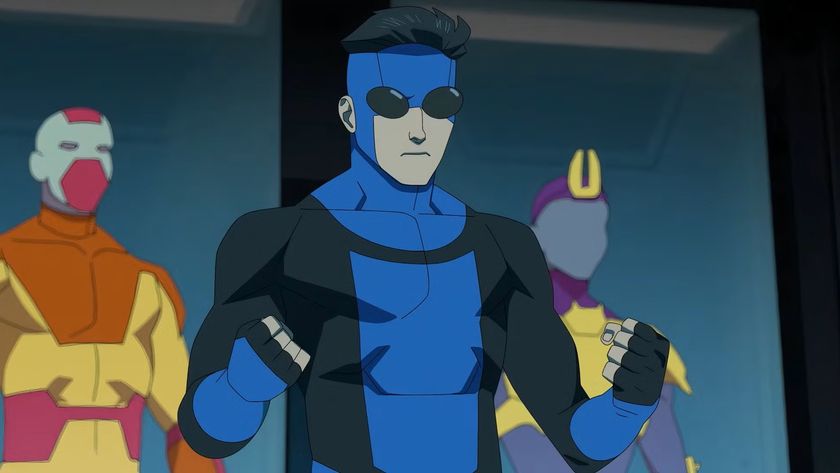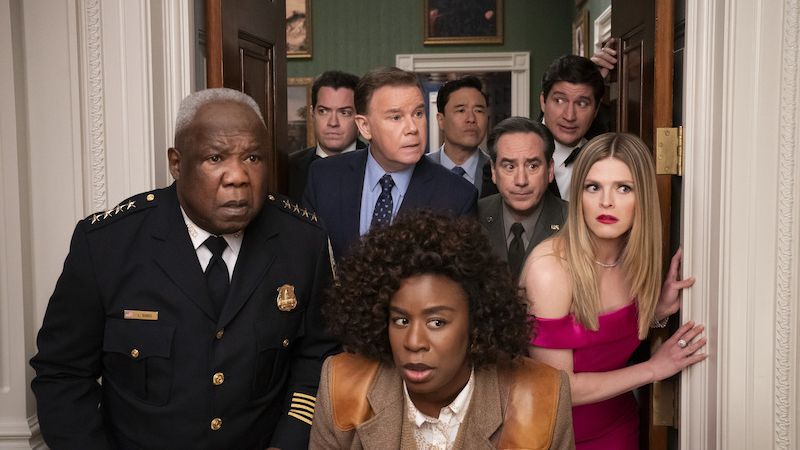I can't stop watching Squid Game — why it's the most addictive show in years
Squid Game has taken over my TV
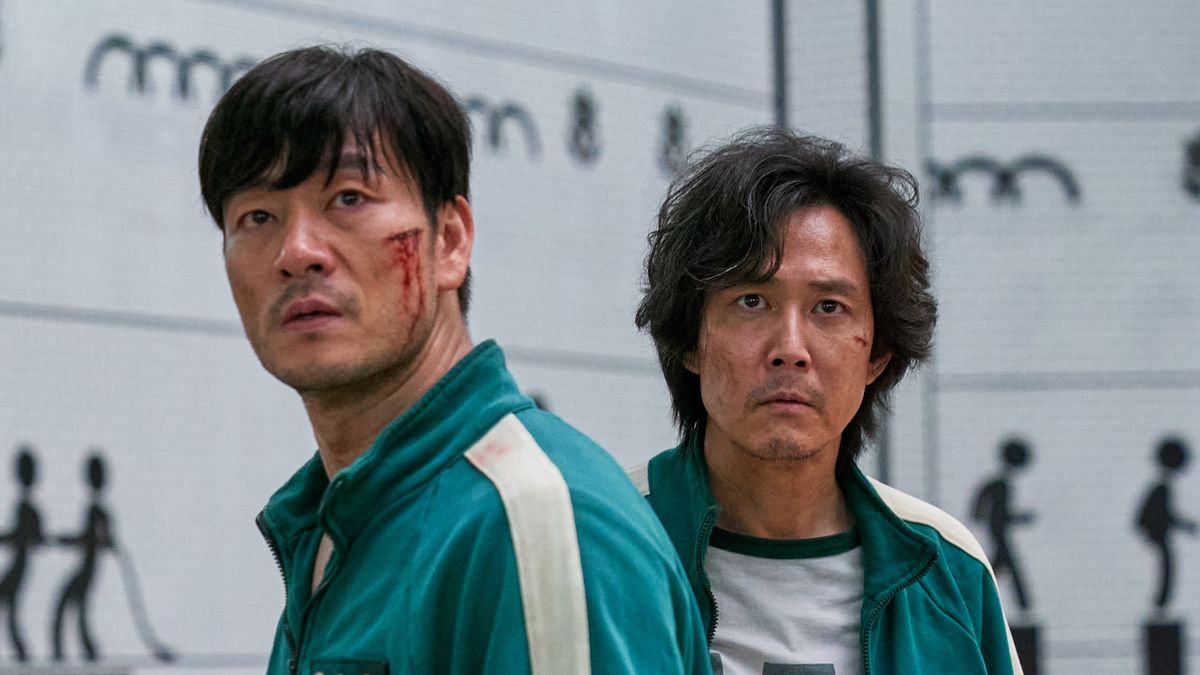
Squid Game is the show I've been waiting for because it's a show I can't stop watching. Normally, I've got a pretty hard built-in resistance to bingeing shows. I often think "I should be doing something else," and move on. Not so with Squid Game, as I only turned off the TV because it was getting late, and I really needed the sleep. I really wish I were watching it right now, but I can't just slack off of work when a new show comes about.
Some plot spoilers for episodes 1 and 2 will follow (but I'm trying to avoid spelling it all out, for your enjoyment if you haven't watched Squid Game at all). The uber-popular Netflix series, which has only nine episodes, has already earned a reputation as one of the best Netflix shows in the mere two weeks that it's been on the streaming service, during which time the hour-long Korean thriller/drama became the talk of the town.
It starts off as a story in Seoul, South Korea about a down-on-his-luck guy named Seong Gi-hun. He's up to his eyeballs in debt, lives with his mother and has a hard time financially supporting his daughter. Not exactly a new story, but that's where a business man comes in.
- Netflix is just one of the best streaming services
- How to watch all of the NFL live streams
- Plus: I tried Squid Game's honeycomb challenge — and it's harder than it looks
How Squid Game hooked me
In rapid fire, at the off track betting parlor, Gi-hun made and lost the money he needs so desperately, and we get the picture that he's a gambling addict always looking over his shoulder for loan sharks. Then, after a mysterious game with a stranger (who smacks him in the face a lot), he's given a card for with a phone number and a circle, a square and a triangle. Before I can wonder if this is a way to buy a PS5, Gi-hun is whisked away to an unknown location.
And this is where the games begin — and my eyes grew in size. Gi-hun wakes up in a warehouse-like room filled with bunkbeds stacked to the ceiling, and we're told that 456 people are here, and they're all going to play six games; everyone who wins would win a fortune. All of the people wear green uniforms, with their number (001 to 456) on a patch, and masked guards with white circles, triangles and squares painted on their masks emerge. And as Gi-hun walks around the room, we started to see some familiar faces.
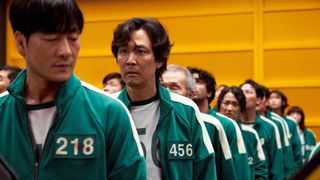
It was in this very moment I knew I was going to be hooked on Squid Game. I typically don't watch much Netflix during the week (pro wrestling, my guilty pleasure, airs live every night of the week, and I watch on most). But when Squid Game's games were even hinted at, I put pro wrestling on mute.
The mere outline of a creepy set of games run by mystery men, tickled all of the itches I have when it comes to TV and movies. You've got a mystery box-like premise such as Lost (what are the games, who is in charge?), a foreboding sense of survival (I didn't even know how much Squid Game would be like Battle Royale) and then the story of Gi-hun's desperate quest for cash. I quickly realized I wanted to be done with Squid Game by the weekend (I have a birthday gathering to go to, and the chance for spoilers skyrockets in casual conversation). Sure, Stranger Things has spooky mysteries, Queen's Gambit has reckless behavior and Sex Education has Gillian Anderson, but those beloved shows that took me multiple times to "get into" have nothing on Squid Game.
Sign up to get the BEST of Tom's Guide direct to your inbox.
Get instant access to breaking news, the hottest reviews, great deals and helpful tips.
And then things got creepier.
How Squid Game shocked me
The one thing I really knew about Squid Game was that there was a giant statue of a young girl. I didn't know what role it would play until episode one showed us the most evil game of Red Light, Green Light ever. The commands to run and stop are issued by the childish voice emanating from the statue, and anyone who fails to stay still after "red light" is eliminated.
Except this game's definition of elimination is much different than how any kids I knew played Red Light, Green Light. The statue has motion sensors in its eyes, and knows when you're moving, and anyone who doesn't stay still is gunned down.

Players scream as the guns hidden in small turrets around the area fire over and over again, and then the rules are repeated again. Now, there's an added emphasis for the word "eliminated." Oh, and there's a five-minute timer that is the other catch. You can't go try and win by going too slowly, you see. You'll need to move fast enough to beat the clock.
We don't even see the bullets go in, they pierce the bodies quickly, and a small gush of blood comes out. A large bulk of the players rush for the shuttered exit, and — since they're all not standing still — they all get gunned down.
This, dear reader, was not in the advertising. Of course, though, it was obvious from the get-go to anyone who's seen something like this. You don't have 456 competitors enter a game conducted with epic secrecy for a massive prize without a little blood being spilled. And then we look back into the control room for the event, where faces start to disappear as they're eliminated.
And my earlier realization — that I needed to see this show through to the end — was reaffirmed.
How Squid Game sets up the rest of the show
And in these moments, Gi-hun is in shock. Knowing what little of him we know, it's natural that the audience may wonder if he'll survive. But since he's the main character so far, we expect him to.
And then, just like in an episode of Survivor, alliances are formed. Cho Sang-woo, a former classmate who Gi-hun recognized earlier, helped him survive with a bit of intel.

And those familiar faces we saw earlier (folks from Gi-hun's time as a gambler), also have to figure out how to survive. Squid Game, it's clear, won't just be Gi-hun's story. It's a new face, though — that of player Abdul Ali — that gives us the best moment of the Red Light, Green Light game: the most breathtaking freeze-frame I've seen in ages. I'd say more, but the surprise is key to the moment.
Squid Game knows its way around its audience, and how to build tension properly. I was almost stupefied and zombie-like in front of my TV. If I had more energy, I probably would have cheered.
Why Squid Game has me racing to the finish
Once the players reached the finish line, and a larger reveal occurs, I realized the potential scale of Squid Game, and how much I needed to complete it. So, at 9 p.m. at night, after a quite tiring day had already concluded, I looked at how many episodes I had left.
If I didn't watch episode 2 at that moment, I'd need to spend 4 hours per night on Monday and Tuesday to finish the show this week (the rest of the week is booked solid, I didn't plan for Squid Game — but neither do its contestants).

One more episode, I thought. I had to see what the second game was.
And then Squid Game zigged, right when I expected it to zag. The second episode brings in a lot of emotional weight. A fatalism pervades throughout an entire debate, and the action dies down a little bit. The more we learn about the once-unlikeable characters, they become all the more compelling. Sure, we're realizing these folks might not be the kind we'd want to loan cash to, or even share a beer with, but we're probably be rooting for them soon.
The show also has shades of the plight of the worker, as players wonder why bother with the grind when you can risk it all on making it big. In short, it has something for everyone.
But that was the point where I had to tap out for the night. Yes, I needed to see what happens next, but I'm not putting my sleep above a TV show. That said, I am putting Squid Game above all other TV. As I mentioned above, I'm relegating pro wrestling to my small laptop screen to prioritize Squid Game. I've got a need to watch Squid Game as fast as I can, because I don't want this ending spoiled for me. I don't know if the ending is great or not, but there is so much mystery and drama to this series that I need to devour it.

Henry is a managing editor at Tom’s Guide covering streaming media, laptops and all things Apple, reviewing devices and services for the past seven years. Prior to joining Tom's Guide, he reviewed software and hardware for TechRadar Pro, and interviewed artists for Patek Philippe International Magazine. He's also covered the wild world of professional wrestling for Cageside Seats, interviewing athletes and other industry veterans.
